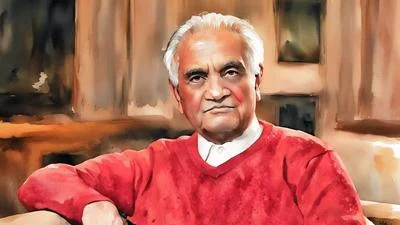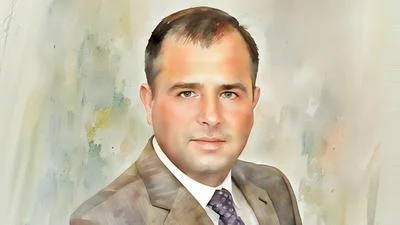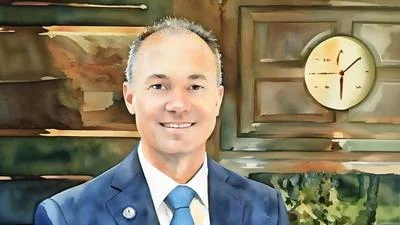Richard Stout, a retired FBI Special Agent with 22 years of service in the Miami field office, has spent his post-retirement years advocating for FBI reform. Having led investigations into technological vulnerabilities, financial crimes, terrorism, drug trafficking, and public corruption, Stout now directs Reform the Bureau, an organization he co-founded to restore the FBI to its original mission of fighting crime and upholding the rule of law.
Stout’s path to the FBI begins with a youthful ambition for law enforcement. “When I was 19 years old, I didn't really have much of a guide as to what I wanted to do, but I thought it could be law enforcement,” he says.
He started as a reserve deputy while attending community college, later becoming a jailer, then a Virginia State Trooper. He worked in Fredericksburg and Richmond, focusing on drug investigations tied to Maryland’s narcotics trade. His expertise caught the attention of the FBI at a time when Director Louis Freeh sought experienced drug investigators.
“Louis Freeh needed a lot of people with backgrounds in drug investigations,” Stout says. “So, I got picked up, and when I did get hired, I said my goodbyes to my wife, gave her a kiss, and drove 50 minutes to the FBI Academy, where I stayed for the next four months.” He was eventually assigned to the Miami field office.
Stout reflects on the fundamental changes within the FBI over the years. “1975 was really a pivotal time,” he says, referencing post-Vietnam War shifts and the increased legal scrutiny on FBI operations. “Gone were the black bag operations where agents could sneak into somebody's house. Gone were the instances where people like MLK had their phones tapped.”
He expresses frustration over what he describes as the FBI’s drift from its non-political roots. “We're in a Cold War with the Chinese government,” he says. At the same time, “we’re funding the education of Chinese nationals who then take our technology back to China at no cost to them.”
Stout sees Chinese influence on college campuses as just one element of a broader threat. “We have Central and South American gangs in our streets; fentanyl is wiping out a generation of kids,” he says. It all points to a bad sign. In his view, “Our American sovereignty is clearly under attack.”
Stout distinguishes the FBI from other intelligence agencies. “The FBI started as a law enforcement agency during a time when bootlegging was happening–the government instituted federal laws to counter interstate criminal activity,” he says. Over time, however, he explains that the FBI’s role expanded into intelligence gathering, particularly during World War II, and contributed to the formation of the CIA for foreign operations.
The aftermath of 9/11 marked a significant turning point. Stout believes then-FBI Director Robert Mueller’s response altered the agency’s structure in a way that moved it from its traditional strengths. “Mueller didn’t like the culture of the FBI,” he says. “After 9/11, he wanted to centralize headquarters; the problem was he didn’t have the manpower.”
One problem, he says, was that “agents don’t gravitate toward headquarters.” To fill positions, Mueller offered promotions and incentives for agents to take desk jobs. “You’d have somebody with five, six, seven years in the Bureau running a major squad,” and “anybody with common sense knows that’s not a good mix,” he says. He believes that the shift affected FBI culture.
Stout describes how, in the past, field agents looked up to senior case agents. “You would learn from them,” he says. “I worked on a Colombian drug squad, and we used every investigative tool available. We took our cases step by step, ensuring everything was done legally because if you don’t, you lose the trust of the American people.”
He laments that today, agents spend more time at their desks, learning through virtual tests rather than real-world investigations. “The FBI is not an 8-to-5 job, but a lot of supervisors treat it that way.”
The erosion of FBI credibility accelerated during the Trump era, according to Stout. “The public lost confidence because of McCabe and Strzok,” two FBI officials the media has reported engaged in what appeared to be politically-motivated efforts, “and the way the FBI circled the wagons to play it down,” Stout says.
He adds, “then you had [then-FBI Director] Comey running a political investigation from the seventh floor of headquarters.”
He criticizes the decision to bypass traditional investigative channels. “Investigations are run in field offices for a reason—to ensure checks and balances.” But, according to Stout, “Comey’s team was in an echo chamber, operating with clear political bias.”
Stout believes change at the FBI is imminent. “It’s likely going to be Kash Patel as the next FBI Director,” he says. “I believe he is capable of doing what the previous three directors failed to do.”
Moving forward, “AI should be our biggest priority,” Stout says.” “We need a comprehensive strategy to combat cyber threats and streamline investigations. He also believes the Bureau should “purge and realign headquarters,” because in his view, “seventy percent of people there aren’t doing anything effective.”
Stout is optimistic that his new Reform the Bureau movement is on the right path. The FBI, he says, includes “good, honest people who just need leadership and positive direction.” According to him, “reforming internal policies, restructuring leadership, and re-prioritizing resources—these are the steps we need to take.”
For former agents and others interested in supporting reform efforts, Stout directs them to ReformTheBureau.org. “We’re a small operation, but the response has been overwhelming,” he says. “We’re going to keep fighting to make the FBI what it was meant to be.”









